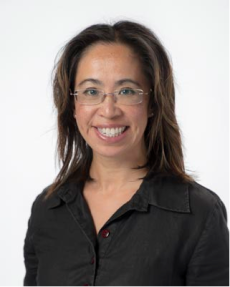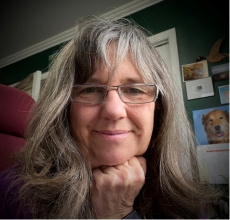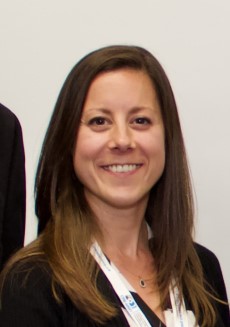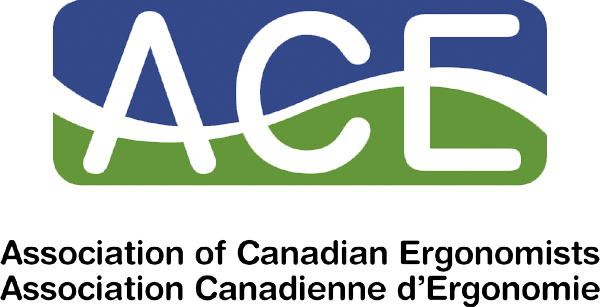At the ACE 2022 Virtual Symposium the National Student Committee ran a panel session entitled: ‘Working as a Canadian Ergonomist: Stories and Advice from Coast to Coast’. In this session, five fantastic speakers from across the country shared their perspectives and advice to both student and early career ergonomists. A summary of each speakers’ major takeaways is included below.
Emma Christensen

It helps to know what drives you and to trust your intuition. This will lead you on a path that you may not expect but hopefully find rewarding if you stay true to your values. I love working with people and I felt grateful that I could see firsthand how I can make a difference with the clients and organizations I was helping. I also enjoyed meeting people from a variety of educational backgrounds, which is a unique trait in the field of ergonomics. Regardless how much experience you have or don’t have, be curious in what others have to share and never stop opening your mind to what others have to teach you. This includes the clients you are helping. We can forget that when we are thought of as the expert. You never know what tidbit of insight might come in handy to have in your toolbox. Regardless of what stage you are in your career, you bring your own set of unique knowledge and life experience with you that others may not have, so be confident in what you know and genuinely curious to learn. Technology is changing the world we work in so rapidly that we are all learning. There is so much opportunity for us to study how technology will affect our work, our bodies, our cognitive ability, our mental health, our level of efficiency and our work/life balance. With all these changes coming, you may end up doing ergonomics in an unexpected field. So don’t limit yourself. Apply your ergonomics mindset everywhere in life.
Larissa Fedorowich

What advice would you give to a student or young professional starting in the human factors/ergonomics field?
I would recommend for anyone starting out, to pursue every available opportunity to gain as many experiences as possible, including exploring different areas of ergonomics. I have found working collaboratively with a variety of ergonomists to broaden my scope of knowledge and help shape my approach. Connect, follow and reach out to those professionals who’s work you find interesting or aligning with your own interests. LinkedIn is a great professional networking site which allows you to display your own interests and explore the interests of others. Participating in associations, conferences, and webinars, is critical to expanding your knowledge and ability to network with other professionals in the field.
Do you have any recommendations on important ‘soft skills’ to develop?
Empathy is such a vital skill to develop and hone. Although as ergonomists, we have such a measured way of dissecting work, we can never forget that there are humans performing this work and they are the experts when it comes to understanding their job.
What is the biggest opportunity for ergonomists/human factors professionals in the future?
I think the future will include more options for ergonomists to be part of multidisciplinary teams to advance projects that take an earlier preventative role such as equipment, workstation and process (re)design.
Linda Sagmeister

I was recently asked by ACE to share what I would think are some key points for people who are beginning, or considering, a career in ergonomics. Reflecting on the last 30 years, I have learned (and recommend to others), that the breadth of ergonomics and human factors must always be considered. It is not only physical, cognitive or organizational, but it is all three, all the time. That means recognizing that your fellow ergonomist may not be as well versed in your area of application as you are, (and vice versa), but you share a basic approach and philosophy. From collaboration, comes great things! Another recommendation I would make is to at least be a member, if not to actively be involved in, the Association of Canadian Ergonomists and other professional groups or communities that share our interests (e.g. usability, design....). The networking and learning opportunities are rich; keeping in mind, you get out of them what you put into them. With the world of work changing as much as it does (e.g. Industry 5.0) we need all of our talents, skills and creativity to make it what we need it to be. Ergonomics is a great field in which to practice them.
Dr. Linda Miller

I started my career in Occupational Therapy in 1989. Shortly after beginning my career, I realized I loved injury prevention, so I embarked on my master’s degree in environmental design. As part of my thesis project, I studied and applied principles of participatory ergonomics. The project enabled a small remote lumber mill to apply ergonomics both reactively and proactively to its facility via its ergonomics team to reduce musculoskeletal injury risk. That project sparked my interest to help organizations embed ergonomics into its operations via engineering, safety, and frontline employee/supervisor teams.
I have been an ergonomist for approximately 35 years. I practice as both an Occupational Therapist and Ergonomist. The two disciplines compliment each other well addressing both individual concerns and workforce concerns to support both health, wellbeing, and productivity.
My advice to a new grad wishing to develop their career is as follows:
- Find a mentor. I had numerous mentors throughout my career both professionally and personally.
- Continue learning. I regularly attended conferences, took new courses, and read a lot to refine my practice.
- Get involved. Throughout my career I participated in ACE, CCPE and assisted to promote the discipline and profession.
- Never hesitate to learn from others. Often when I was confronted with a problem that I did not have the expertise in - I partnered with others that did have the expertise, so the client had the best quality work.
- Don't shy away from reinventing yourself when things change. I have seen so much change in my 35 years of practice. Being able to adapt and learn new skills has been so critical to my growth.
- Build a strong community with other practitioners. I have had the opportunity to work with so many ergonomists in Canada. It allowed me to learn from others, but also brainstorm solutions when confronted with problems in practice. It also allowed me to build wonderful friendships that have lasted over the past 35 years.
I hope to continue in my chosen professions for another next decade. Now, I love to teach and when given the opportunity to mentor others.
Kim Meszaros

What is your current role in the HFE field? Please describe some of the details of your work, aspects of the job that you enjoy vs. what are challenges.
As the Ergonomics Research Coordinator for the Centre of Research Expertise for the Prevention of Musculoskeletal Disorders (CRE-MSD), my primary role is supporting the continuous development of the MSD Prevention Guideline for Ontario. I enjoy collaborating with health and safety system partners, industry stakeholders, researchers and practitioners as well as participating in outreach activities to help organizations understand how to integrate MSD prevention into their programs and systems.
My roles in research and practice are aligned with a focus on MSD prevention and wellness. Through my experiences, one of the largest challenges is many companies are still using a reactive approach to address MSD. This typically involves intervening with ergonomics support after an injury has been reported. As HFE professionals, we need to continue to have the conversations with company stakeholders to increase awareness of the benefits of implementing ergonomics upstream into the design of work and demonstrate the return on investment of a proactive model to improve workers’ wellbeing as well as organizational performance.
What advice would you give to a student or young professional starting in the human factors/ergonomics field?
- Get involved with professional associations, such as ACE, for continuing education opportunities and connecting with HFE professionals and other students. I volunteered on the ACE Ontario Council as Secretary for a two-year term, and I am currently supporting the ACE National Student Committee as an ACE member advisor. The connections and knowledge gained by networking are invaluable and can lead to potential opportunities in the future!
- Take every opportunity, as a learning opportunity. I have never walked away from an assessment or project without learning something. Some experiences have contributed more to development of professional skills and others have been about personal growth and gaining confidence in my abilities.
- Push yourself outside of your comfort zone. This is one thing I struggled with when I was early in my career. My mentors encouraged me to take on new challenges, whether it was supporting a new client in a different sector or providing a different service that I had never provided before. I realized that when I embraced new opportunities, I learned more, which helped me grow professionally and personally and helped me gain more confidence in myself.
- Be aware of what you know and admit when you don’t know something. There have been many instances where I’ve been asked a question in the field that I wasn’t confident answering. It often required some research or looking up a reference to confirm before I could provide a complete answer. My advice would be to get comfortable with saying, “That’s a great question, I will look into it and get back to you.” I’ve found that the effort involved in formulating a comprehensive response to someone’s question and following up is typically well received, expands your knowledge on the topic and increases your credibility as a professional.
